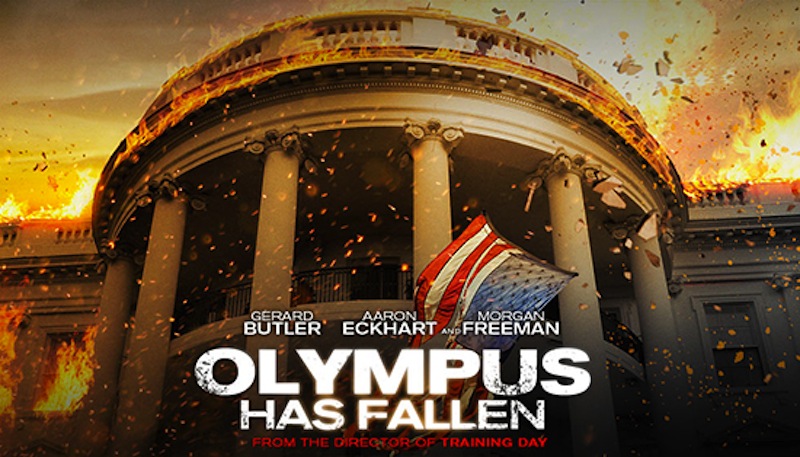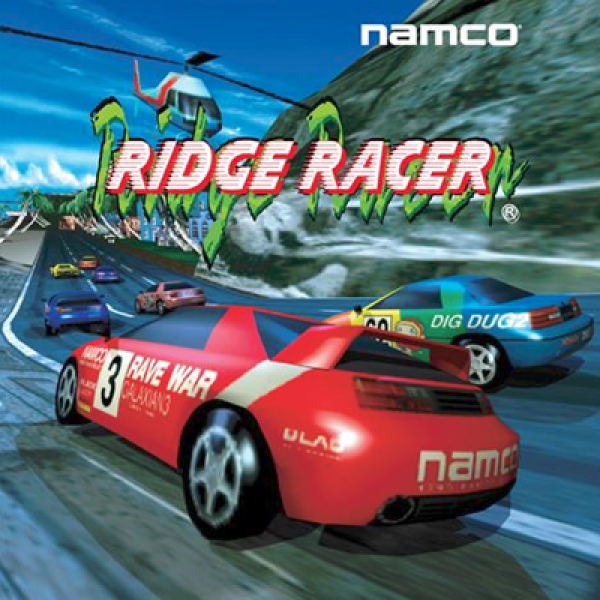Last updated on September 29, 2013
Olympus Has Fallen – So, what exactly do you know about Antoine Fuqua? Apparently, his name didn’t even make this particular poster at all, but most people know him for a film he directed nearly twelve years ago at the time of this writing – clearly, not a great track record. Heck, I watched Tears of the Sun (Bruce Willis would work much better in this film, however) and the “gritty” (and horrible) King Arthur film from a few years ago. And that one where Mark Wahlberg snipes people too, if I remember correctly. Clearly, the line of work Fuqua produced appeals to a certain audience: that of rogue justice, or disobeying orders for a higher call.
Surprise! Olympus Has Fallen follows Gerard Butler’s character who’s a former disgraced Secret Service agent. He was good friends with the president (Aaron Eckhart), but now reminds said president of the death of a family member. Cue Die Hard in the White House, except the black cop turns into the Speaker of the House (played by Morgan Freeman) and the stakes look a little higher than usual (nuclear destruction by magical missile codes versus bank robbery, you know the deal). In fact, much of this reminds me of A Good Day to Die Hard, one of the most hilariously overwrought, insane, poorly choreographed films that I’ve seen in a long time. Replaced Russians with North Koreans, and you might see the exact same movie.
Thankfully, first appearances deceive, and Olympus Has Fallen manages to capture the Die Hard spirit better than the actual fifth Die Hard! Mostly, this comes across through insane action sequences that the eye can follow, an equally faceless enemy with a memorable leader (if the stereotype of terrorism from certain countries started to feel old a long time ago), and many veiled threats as to killing and destroying things bantered between both sides. The script throws humor here and there, certainly not in the McClane style, but enough to make Butler a rather convincing leading man, and far better than his action-adventure lead contemporaries. In any case, the film remains supremely entertaining as rout genre fare, echoed by its incredibly high Cinemascore (A-) relative to its critical reception (somewhere between “negative” and “earth-shatteringly bad”).
So, should you see it? If you can stomach high-quality, predictable popcorn action, oh-so-bad-for-you yet oh-so-good for the high-octane action maven in every American male, then yes, watch it. In fact, if you cannot guess how the film ends within fifteen minutes, I beg you to watch something else (say, Die Hard) before finishing it at all. There’s many films on earth that use this exact same premise and do it better. Yet, when all’s said and done, this pro-America violent spectacle goes for the jugular and ends up being fun, if a bit too serious for its own good at time. A little more humor and levity (maybe some ironic self-awareness) would aid the film in retrospect, but I highly doubt you will care when watching it.
To summarize: Olympus Has Fallen shows all the makings of a standard Die Hard clone, but plagiarism works.
Ridge Racer – As a bit of a preview, I’ve been playing every single Ridge Racer (by buying them all, duh) to see the evolution of the arcade racing game.
Frankly, it’s amazing to see how little the series changed over a period of a decade or so. Imagine that the first game in the series emerged onto the scene in 1993, and the well-known (and praised, if not now than then) Playstation port in 1995. The fundamentals still remain there – the close turns, the stylish cars, and the drifting honed to near perfection. Playing without an analog stick still makes me feel incredibly strange, but the whole control setup works just fine. If anything, the drift timing’s much more strict the further back you go, the penalty for crashing (as in, how much speed you lose) worse, and the speed of the entire game much less like real life.
As well, the series intentionally cultivates an attitude of “cool”, and while that may not appear the case in the earliest title (or its immediate sequel Ridge Racer Revolution), that’s certainly true of subsequent entries. Rage Racer goes for a darker color palette more attuned to real life, while R4 advances this through the downbeat electronica of its eclectic soundtrack. Ridge Racer isn’t just a racing game, it says; here’s a mood, a vibe, a train of thought about racing games. It’s all about the flow, and stepping out of the flow means you lose. Certainly, the holistic experience of Ridge Racer contrasts heavily to Western-designed racing games, with their complex physics engines and their grab-bag approach to music.
Ridge Racer V takes the series into the “modern” era, and the game aged incredibly well over the last decade. It still evokes the same feelings as it did in the past, and the addition of a DJ (who apparently can’t speak English correctly) adds yet another layer to the whole shebang. Ridge Racer 6 and 7, coming so close, nearly copy each other wholesale in that respect by updating V’s aesthetic for the “next-gen” (at least at that time), and upping the speed through the introduction of nitrous. Yet more layers of concentration, awareness, and game flow get thrown into the mix.
I’m not even sure what really attracts people to Ridge Racer. The limited options, the unrealistic care physics that make you wonder whether anyone at Namco drove a care in their entire lives, the cars based on real cars that aren’t actual cars, and the Japanese vibe should turn people off to this series, especially in the West. Thrust into irrelevance by a Western-focused market, then, it’s a shame Namco-Bandai handed the series to an spin-off title like Unbounded, which turns Ridge Racer into Criterion’s Burnout for no reason but sale. It may drift, but it ain’t Ridge Racer, that’s for sure. In my humble opinion, Ridge Racer needs to go back to its roots. But that’s an article for a different day!


